As hunter-gatherers by nature, many Orang Asli families lived by gathering from the forest. However, over the recent years, many Orang Asli have had to transition from forest gathering (such as gathering bertam or fishing) to agriculture as their main source of livelihood. This is due in large part by increased deforestation for logging and palm oil.
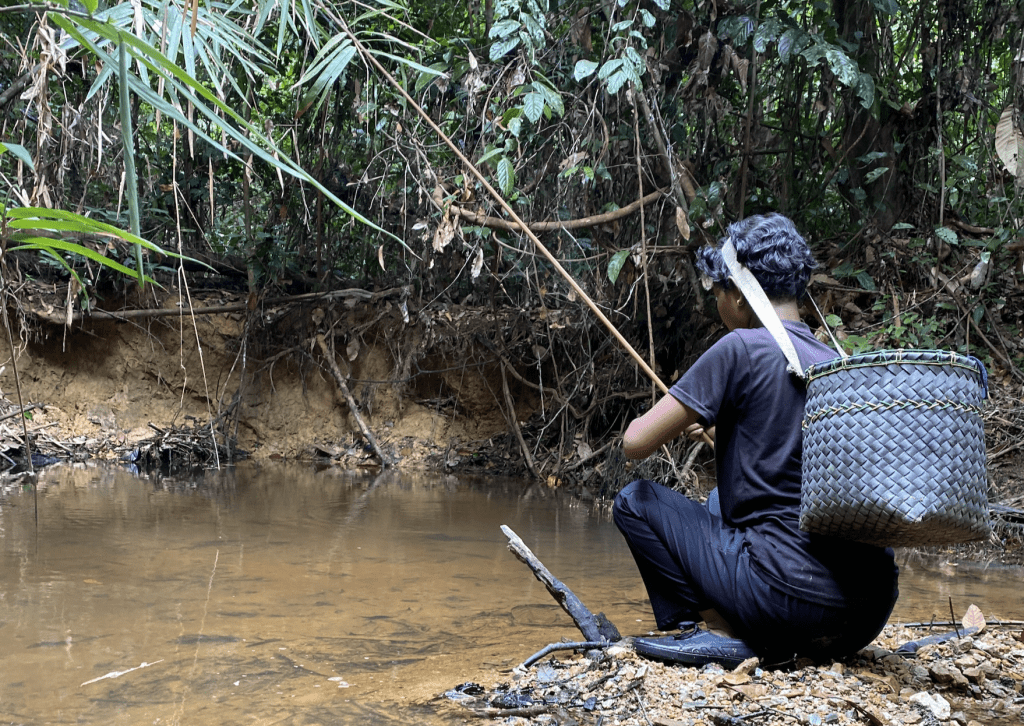

During the Covid-19 pandemic, we found that many Orang Asli families lost their income and did not have food supply. Unable to rely on the forest, many of them had to rely on food aid to put food on the table for their families.
This lack of adequate food not only results in hunger and food insecurity but also malnutrition, particularly in children.
Although many villagers are keen on farming, they face a multitude of challenges that prevent them from farming successfully such as lack of capital and experience. Recognizing that food security is crucial to building resilient Orang Asli communities, we decided to work together with the villagers to find a sustainable solution.
Why Regenerative Farming?
After months of research and work on the ground with our farmers, we introduced Syntropic Agroforestry (SA). SA is a type of regenerative farming method that aims to rebuild the health of the soil by promoting biodiversity and increasing soil organic matter. This farming method rejuvenates the ecosystem to allow a diverse variety of plants to grow, while reducing erosion and nutrient loss.
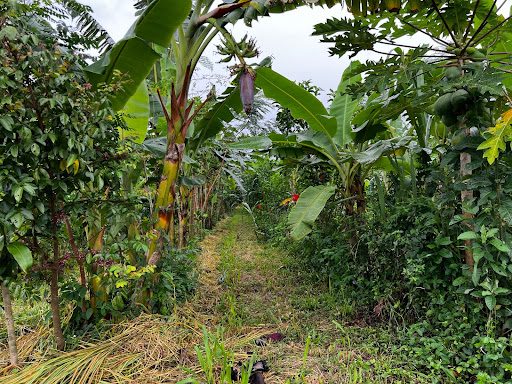

The goal of regenerative farming is to create a self-sustaining ecosystem that benefits not only the farmers but also the environment. In the long term, we hope that these farms will become self-sufficient, providing farmers with nutrient-dense and organic food whilst regrowing the lost forest of the Orang Asli.
Milestones On the Journey To Regenerative Farming
During the beginning stages of regenerative farming, many Orang Asli farmers struggled with complex farming challenges. Their lack of experience and knowledge about the principles of regenerative farming– pruning, mulching and planting densely– made it difficult for them to follow the SA farming method.
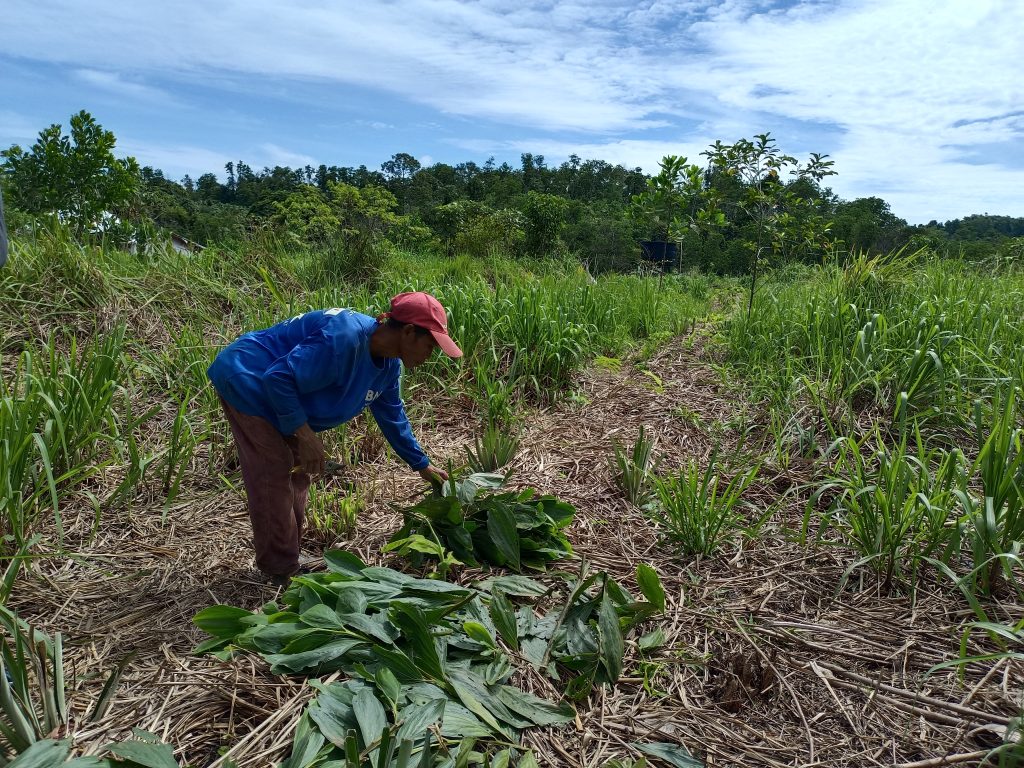
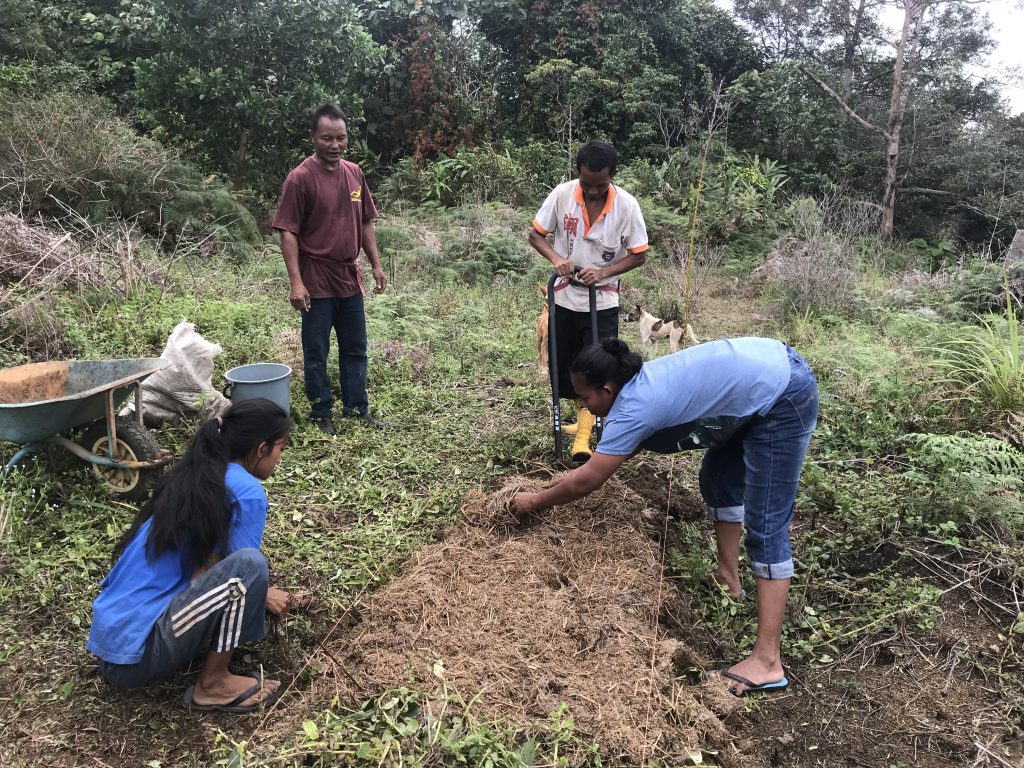
To help the farmers to overcome their challenges, our team worked closely with the farmers and provided them with hands-on coaching and training in their farm plots. To further support them, we also organised the Jaringan Akar programme, a network of and for Orang Asli farmers. The Jaringan Akar programme ensures that farmers are able to confide in one another and to share their farming experiences, challenges and knowledge.
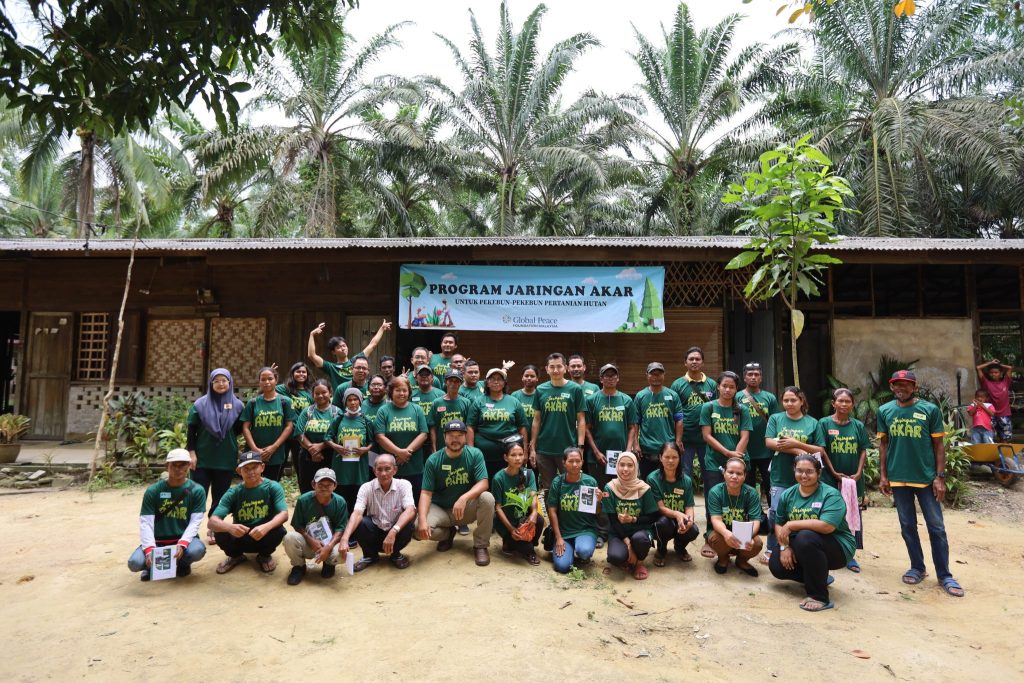

Furthermore, we also provide farmers with additional training and mentorship through our partnership with A Little Wild, Malaysia’s first syntropic farm in Kota Tinggi, Johor. The 3 hour trip to A Little Wild is always such a rewarding experience for the farmers as they get to experience first-hand what a successful syntropic farm plot looks like!
Continuous Learning: The Key To A Thriving Farm
Last month, we organized a trip to Kota Tinggi with all of the Orang Asli farmers for an intermediate training session. The focus of this training session was to learn more about the importance of bio-mass. Led by Imran, a trainer at A Little Wild, the farmers engaged in an open discussion with one another and had the opportunity to gain deeper knowledge about syntropic farming.
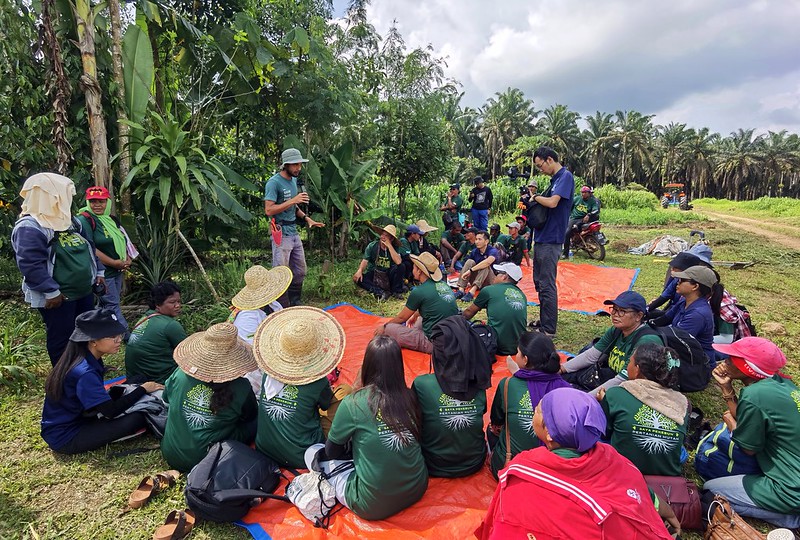
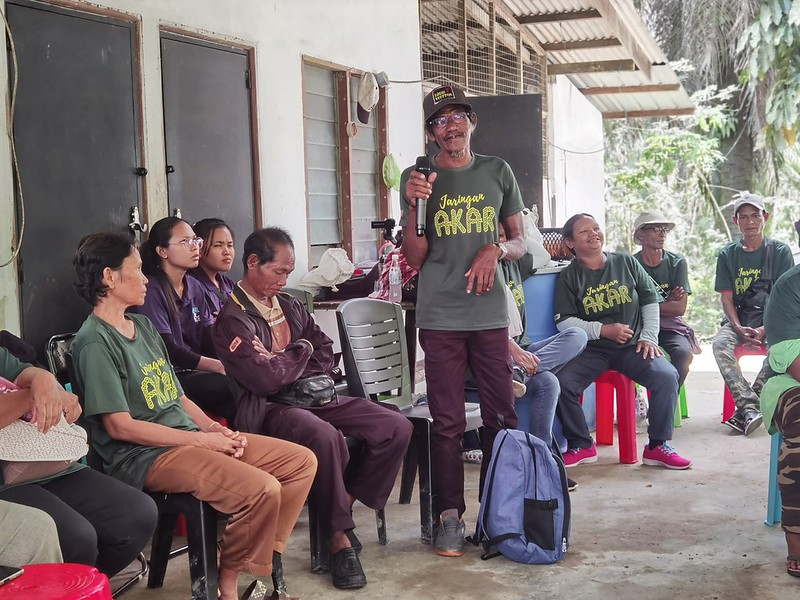
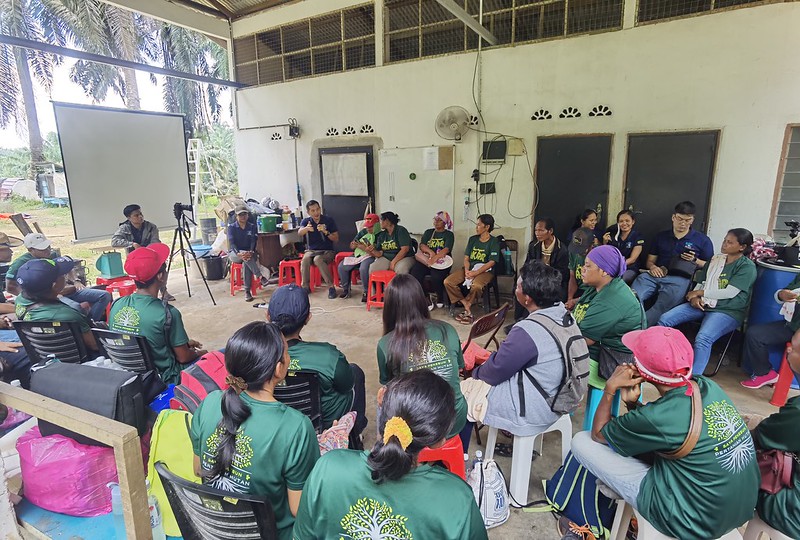
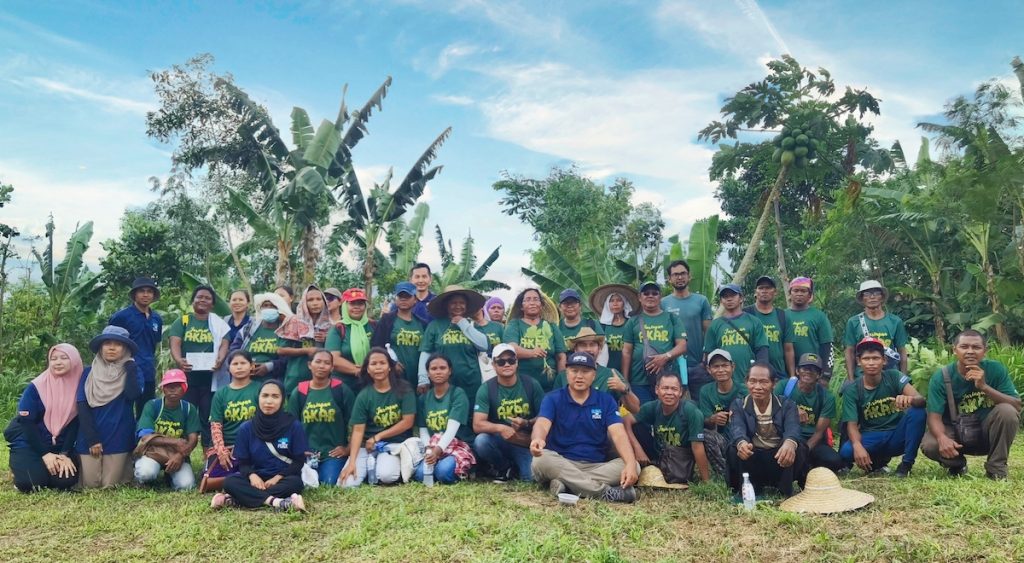
We hope that the immersive training sessions at A Little Wild, Kota Tinggi will support the Orang Asli farmers to apply the principles of SA farming in their own respective farm plots.
Fruitful Beginnings
We are now embarking on the one year mark since we started our Syntropic Agroforestry project with the Orang Asli farmers. Despite initial challenges and a few hiccups along the way, the farmers have come so far and we are so proud of the progress that they have made in their farm plots! Through their hard work, tenacity and passion, many of the Orang Asli farmers are now seeing the fruits of their labour and have begun harvesting a variety of vegetables such as okra, cucumber, lemongrass, corn and more.
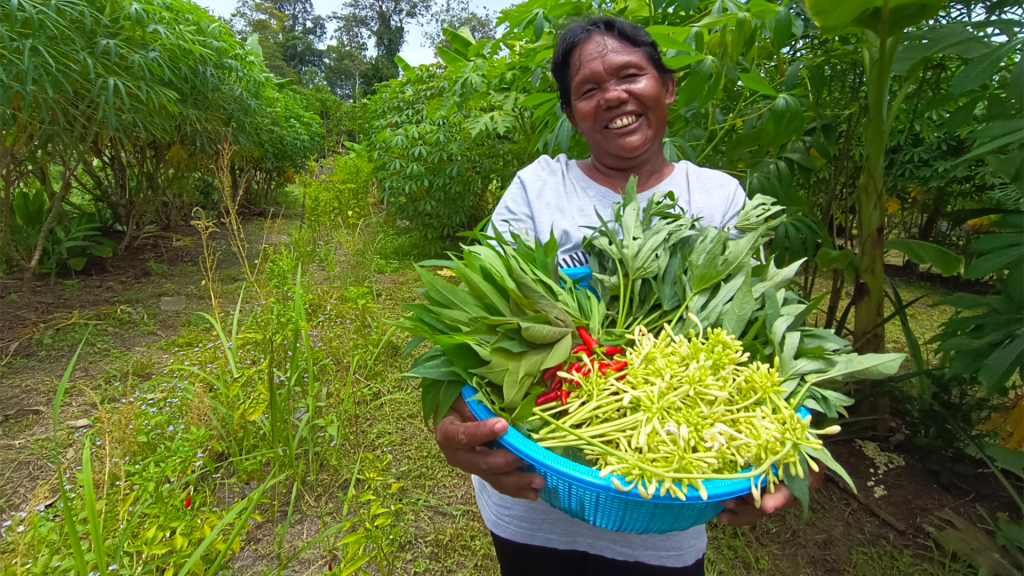




However, this is only the beginning of a much longer journey to come! As stewards of the land and with livelihood dependent on the forest, we hope that regenerative farming will not only provide the Orang Asli with nutrient-dense and organic food but also help to regrow their lost forest. Through our Syntropic Agroforestry project, we hope to continue to support and cultivate farmers in their knowledge and experience in regenerative farming, so that this can become a stepping stone for Orang Asli families to become resilient and self-sufficient for many years to come!
If you would like to learn more about regenerative farming, click here! If you would like to support the livelihood of Orang Asli farmers, you may also purchase their fresh produce by signing up here! You can also order Kebun Amai’s homemade products on Whatsapp at 013-5230587.
Written by:
Lauren Chew







1 Comment